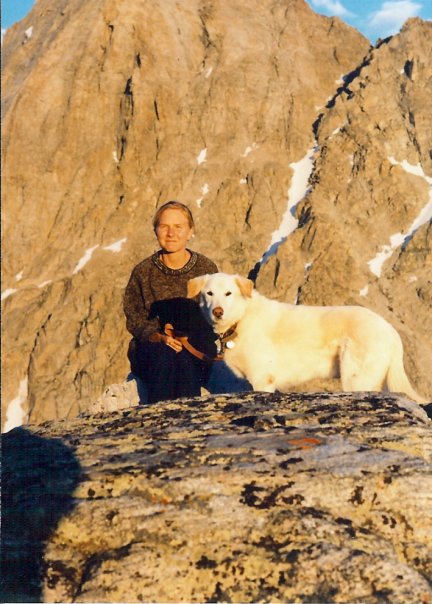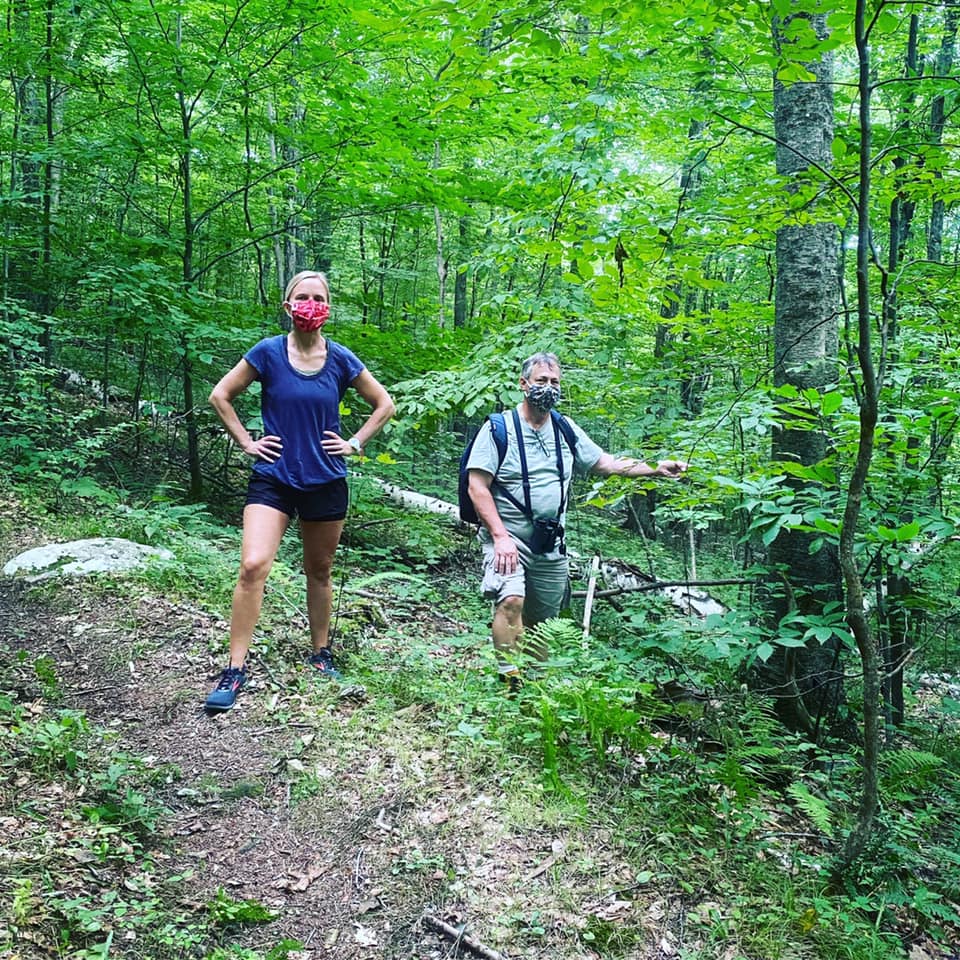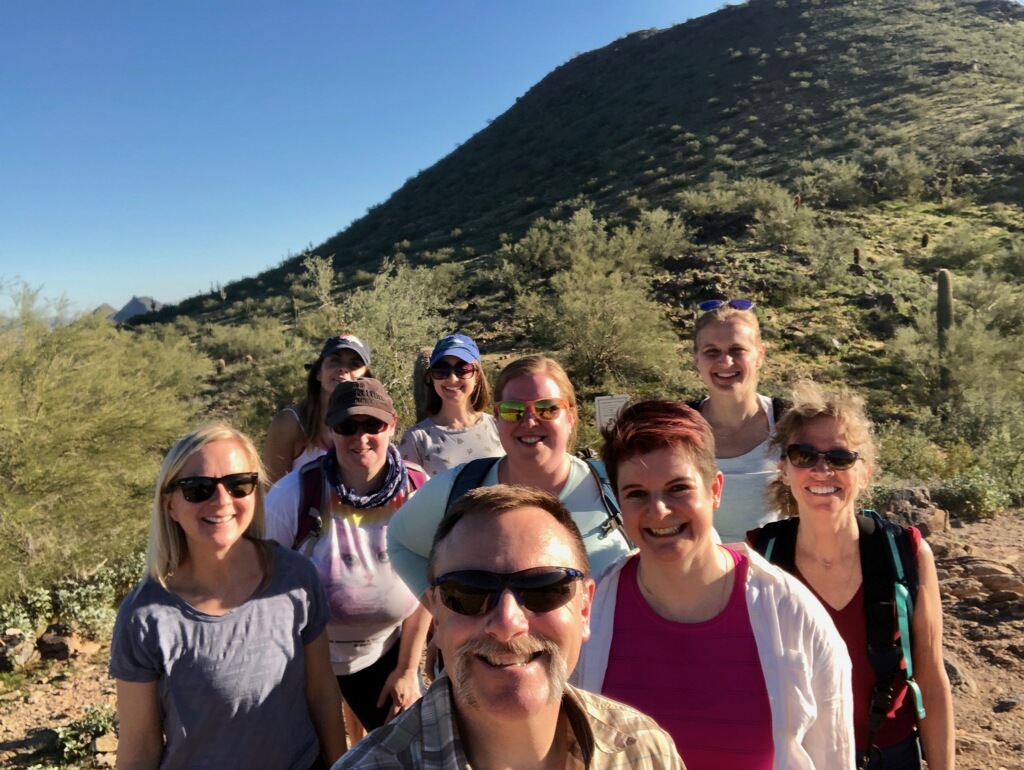 Have you ever wondered who the Commissioners are and what they do? We caught up with Commission Vice-Chair Catherine Rawson and asked her five questions about her experience as a volunteer Commissioner and about her love of the land.
Have you ever wondered who the Commissioners are and what they do? We caught up with Commission Vice-Chair Catherine Rawson and asked her five questions about her experience as a volunteer Commissioner and about her love of the land.
Q:What drives your passion for land conservation?
A: I am passionate about land conservation because my personal experiences in nature have shaped my life for the better. I depend on nature for recreation, inspiration, and as a place where I can relax and regain perspective. But I am also inspired by seeing first-hand how conservation benefits communities of people. With each passing year, I feel more grateful to have the opportunity to support healthy communities and a legacy of conservation that will last beyond us all. Knowing that the result of my efforts is the permanent protection of extraordinary places is the only motivation I need.
 Q: You sudied environmental law and were the assistant attorney general for the State of Connecticut. Can you talk about how your knowledge of the law has shaped your point of view regarding conservation?
Q: You sudied environmental law and were the assistant attorney general for the State of Connecticut. Can you talk about how your knowledge of the law has shaped your point of view regarding conservation?
A: I was first interested in becoming an attorney because the environmental nonprofits I worked for early in my career needed good legal advice to shape policy decisions and undertake environmental defense but could not afford it. I thought I could help these organizations by becoming a lawyer. Thankfully, that proved to be true and I have been able to pursue work that fits well with my conservation ethic. However, I don't think my legal training fundamentally shaped my point of view about conservation. Rather, it provided me with an extremely helpful lens through which I examine conservation practices and strategies. I use that perspective every day to improve the quality of my work.
Q: What has been the most surprising thing about serving on the Commission?
A: Commissioners are fun! I was not expecting to be surrounded by such a dedicated, caring, and happy group of fellow commissioners. I am consistently in awe of their talent, integrity, experience, and commitment to supporting land trusts across the country.
Q: As a Commissioner you have the chance to travel around the country for Commission meetings. Which place have you enjoyed spending time in the most?
A: Each meeting has involved one special field trip or experience that has allowed the Commissioners to get to know a place. In
Houston, we held our meeting at the Houston Audubon Edith L. Moore Nature Sanctuary. It was fantastic to experience this wild and beautiful preserve in the middle of the city of Houston. During our Phoenix meeting, we hiked in the Sonoran Desert and relied on our mid-west and western commissioners for species identifications. In Seattle, we took a day trip to land protected by the Bainbridge Island Land Trust and their impressive staff led us on a hike. But, honestly, my favorite meetings are in Saratoga Spring because of how I travel there. The day of the meeting I leave my house in Connecticut at 4 or 5 AM and drive north through the Litchfield Hills of Connecticut and Hudson Valley of New York. It is a stunning landscape during sunrise.

Q: What is your favorite way to spend time in nature?
A: My favorite way to spend time outside is with my two children, aged five and four. We hike, wade through rivers, look at stars, and walk our dogs. Earlier this month when I helped my daughter write a letter to Santa, her first request was for plants that she could grow with me in a garden outside this spring. My heart just about exploded.
Thanks to Catherine for sharing his story with us!
About the Commission
The Land Trust Accreditation Commission's main office is located in Saratoga, New York. There are five full-time staff who work out of this office and two staff members who work remotely (though right now, we're all working remotely!). The staff are responsible for the day-to-day operations of the Commission and are responsible for processing and reading applications as well as promoting accreditation. Click here for more detailed information about the role of the Commission.
The Commission is governed by a diverse board of 18 volunteer commissioners involved in land conservation and nonprofit management experts from around the country. Commissioners volunteer their expertise to verify that a land trust is implementing specific accreditation indicator elements from Land Trusts Standards and Practices. Click here to learn more about the commissioners, including a commissioner job description.
Commissioners and the Commission review staff work together to review accreditation applications. Several times a year, Commission meetings are held to present on that round of applications. Before COVID-19 these meetings would take place around the country but are presently being held via video conference.





